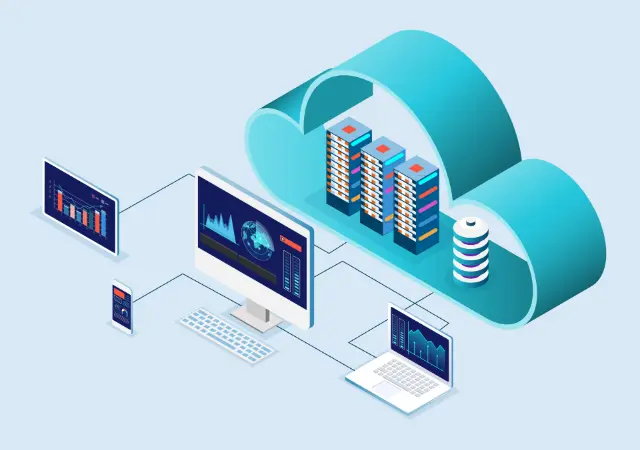Empowering the Manufacturing Industry: Order Management Automation with Python, AI, and Cloud
In the fast-paced manufacturing industry, where efficiency and accuracy are paramount, order management automation is not merely an option but a necessity. Traditional order processing methods are often prone to errors, delays, and inefficiencies, hindering customer satisfaction and overall business performance.
Order Management Automation: A Game-Changer for Manufacturing
Enter order management automation, a game-changing solution that leverages the power of Python, AI, and cloud-based technologies to streamline the entire order lifecycle, from entry to fulfillment. By automating repetitive tasks, manufacturers can significantly enhance order accuracy, expedite fulfillment times, and provide exceptional customer experiences.
This innovative approach humanizes the automation process, empowering manufacturers to:
- Eliminate Errors: AI-powered algorithms meticulously verify orders, reducing the likelihood of errors and ensuring data integrity.
- Accelerate Fulfillment: Automated order processing and tracking systems expedite order fulfillment, enabling manufacturers to meet customer demands promptly.
- Enhance Customer Satisfaction: Accurate and timely order fulfillment fosters customer trust and loyalty, leading to increased satisfaction and repeat business.

Python, AI, and Cloud: The Trifecta for Order Management Automation
Python: The Foundation for Unattended and Attended Bots
Python, a versatile programming language, forms the cornerstone of order management automation. It enables the development of both unattended and attended bots that seamlessly integrate with existing systems and automate various tasks:
-
Unattended Bots: These bots tirelessly work behind the scenes, automating repetitive and rule-based tasks such as order entry, data validation, and inventory management. By leveraging Python’s powerful libraries, manufacturers can create sophisticated bots that handle high volumes of orders with precision and speed.
-
Attended Bots: Designed to assist human workers, attended bots provide real-time support during order processing. They can guide operators through complex tasks, retrieve information from multiple systems, and even handle exceptions, enhancing productivity and reducing errors. Python’s flexibility allows for extensive customization, ensuring that attended bots align perfectly with specific business requirements.
Cloud Platforms: The Orchestration Powerhouse
Cloud platforms transcend traditional RPA/workflow tools by offering a comprehensive suite of automation capabilities:
-
Centralized Orchestration: Cloud platforms provide a centralized hub for managing and orchestrating all automation processes, enabling manufacturers to gain a holistic view of their operations.
-
Advanced Features: Cloud platforms offer a plethora of advanced features, such as machine learning algorithms, natural language processing (NLP), and image recognition, which empower manufacturers to build more intelligent and efficient automations.
-
Scalability and Elasticity: Cloud platforms seamlessly scale up or down to accommodate fluctuating order volumes, ensuring uninterrupted operations and cost efficiency.
AI: The Catalyst for Accuracy and Edge-Case Handling
AI plays a pivotal role in enhancing the accuracy and effectiveness of order management automation:
-
Accuracy Improvement: AI algorithms can meticulously verify orders, identify anomalies, and detect fraudulent activities, minimizing errors and ensuring data integrity.
-
Edge-Case Handling: AI can handle complex and ambiguous situations, such as incomplete or unclear orders, by leveraging natural language processing (NLP) and machine learning techniques. This ensures that even edge cases are processed accurately and efficiently.
-
Advanced Techniques: Specific AI techniques like image recognition can automate tasks such as extracting data from invoices or verifying product specifications, further streamlining the order management process.

Building the Order Management Automation with Python and Cloud
Process Analysis and Automation
The order management process encompasses several key subprocesses, each of which can be automated using Python and cloud technologies:
-
Order Entry: Python scripts can capture orders from various channels (e.g., EDI, web portals, emails) and validate them against predefined rules.
-
Order Processing: Cloud-based systems can automate order fulfillment, inventory management, and shipping processes, ensuring accuracy and efficiency.
-
Order Tracking: Real-time tracking systems, powered by Python and cloud platforms, provide visibility into order status and delivery timelines.
Data Security and Compliance
Data security and compliance are paramount in manufacturing. Python and cloud platforms offer robust security measures to protect sensitive order information:
-
Encryption: Data encryption ensures the confidentiality of orders during transmission and storage.
-
Authentication and Authorization: Cloud platforms implement strict authentication and authorization mechanisms to control access to sensitive data.
-
Compliance: Python and cloud platforms adhere to industry-specific compliance standards, such as HIPAA and GDPR, ensuring adherence to data protection regulations.
Python vs. No-Code RPA/Workflow Tools
While no-code RPA/workflow tools offer ease of use, they often lack the flexibility and scalability required for complex order management automation:
-
Customization: Python allows for extensive customization, enabling manufacturers to tailor automations to their specific business needs.
-
Integration: Python seamlessly integrates with diverse systems and applications, ensuring end-to-end automation.
-
Scalability: Python-based automations can easily scale up or down to handle fluctuating order volumes.
Algorythum’s Approach: Client-Centric Python Solutions
Algorythum takes a client-centric approach, recognizing the limitations of off-the-shelf automation platforms. Our Python-based solutions offer:
-
Tailor-made Solutions: We meticulously analyze client requirements and develop customized automations that align with their unique processes.
-
Performance Optimization: Our Python expertise ensures optimal performance, minimizing latency and maximizing efficiency.
-
Continuous Improvement: We continuously monitor and refine our automations to adapt to evolving business needs and technological advancements.

The Future of Order Management Automation
The future of order management automation holds immense potential for further enhancements and integration with cutting-edge technologies:
-
Blockchain: Blockchain technology can provide secure and transparent record-keeping for orders, enhancing trust and traceability throughout the supply chain.
-
IoT: IoT devices can be integrated to monitor inventory levels, track shipments, and trigger automated actions based on real-time data.
-
AI and Machine Learning: Advanced AI and machine learning algorithms can optimize order fulfillment, predict demand, and identify potential issues proactively.
Subscribe and Connect
Stay ahead of the automation curve by subscribing to our newsletter for industry-specific insights and the latest advancements in order management automation.
Contact our team today for a free feasibility assessment and cost estimate tailored to your unique business requirements. Together, let’s unlock the full potential of Python, AI, and cloud technologies to revolutionize your order management processes.

Algorythum – Your Partner in Automations and Beyond
At Algorythum, we specialize in crafting custom RPA solutions with Python, specifically tailored to your industry. We break free from the limitations of off-the-shelf tools, offering:
- A team of Automation & DevSecOps Experts: Deeply experienced in building scalable and efficient automation solutions for various businesses in all industries.
- Reduced Automation Maintenance Costs: Our code is clear, maintainable, and minimizes future upkeep expenses (up to 90% reduction compared to platforms).
- Future-Proof Solutions: You own the code, ensuring flexibility and adaptability as your processes and regulations evolve.









